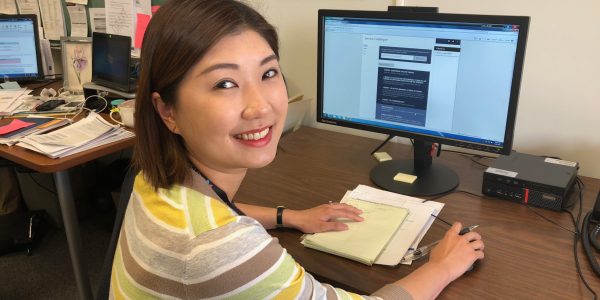New Coastal ASPIRES team to introduce antimicrobial stewardship program
With the assistance of an LGH Foundation donor, the Coastal Community of Care (CoC) is pulling together a new multidisciplinary team to address an issue that some health experts describe as “one of today’s greatest long-term national and international public health threats.”
The new Coastal ASPIRES (Antimicrobial Stewardship Program) team is currently in its early days, but team members Dr. Jane Lin (Pharmacist), Dr. Josh Douglas (Infectious Disease Specialist) and Susan Sinnott (Director, Clinical Quality and Patient Safety) are preparing to conduct a needs assessment and planning process in the coming months.
While the team is based out of LGH, it will be working across all Coastal sites to ensure evidence-based best practices and optimal use of antibiotics are supported across the CoC.
Antimicrobial stewardship in a nutshell
Antimicrobial stewardship is the practice of using anti-infectives – antibiotics, antifungals and antivirals – appropriately which includes using the right drug, dose, frequency and duration when treating infections. The Coastal ASPIRES program will build off the significant work already completed by VCH’s Regional ASPIRES team in collaboration with Vancouver Acute and Richmond Hospital teams.
“We’re looking forward to working as supports for the front-line care teams once the program is in place later this fall,” says Jane, a recent recruit from Fraser Health where she served as a Medication Reconciliation Facilitator. “For the work to be successful, we need to work collaboratively with physicians and the rest of the care team to use antibiotics effectively.”
How do you spell success?
While the team is still a few months away from implementation, they’re aware of the benefits achieved by this kind of shared approach at acute care facilities like Vancouver General Hospital and St. Paul’s Hospital and are hoping to see similar results at the various sites across Coastal.
“When we’re able to work with physicians and provide them with better access to treatment information, they’re able to make better patient care decisions,” says Josh. “We’ll be working with them on an audit-and-feedback mechanism and looking for improvements in patient safety and outcomes, fewer adverse drug effects, and likely a reduction in costs of anti-infective use.”

Dr. Josh Douglas
The long-term goals of the work shouldn’t be overlooked either. Preventing drug resistance and preserving anti-infectives for cases when they’re absolutely necessary is a serious issue around the world.
Team preps for coming months
While it’s still early days for the team, they understand that they’ll need to bring the strengths from each of their respective backgrounds to succeed.
For Jane, it’s her experience as a Clinical Pharmacist, researcher and teacher. For Josh, he’ll be leaning heavily on his fellowship in Infectious Diseases at UCLA, his post-doctoral research in septic shock and his interest in infection treatment optimization. Susan has been ensuring that the program aligns with the Quality and Patient Safety within Coastal and regionally and has been busy preparing baseline data to enable the team to do a thorough evaluation of program effectiveness down the road
“While there are a number of ways we’ll be evaluating the program, a few of the things we’ll be looking at are drug utilization, anti-infective expenditures and performing penicillin allergy testing,” she adds. Other measures may include antimicrobial consumption per patient day, duration of therapy (# of days) and, in conjunction with a national initiative, a point prevalence to look at appropriateness of prescriptions.
For more information on Coastal’s new ASPIRES program, contact Dr. Jane Lin (jane.lin@vch.ca), Dr. Josh Douglas (james.douglas2@vch.ca) or Susan Sinnott (susan.sinnott@vch.ca).


Mary Ackenhusen
Looks like some really great work to improve patient outcomes – thank you to the team!
Mary